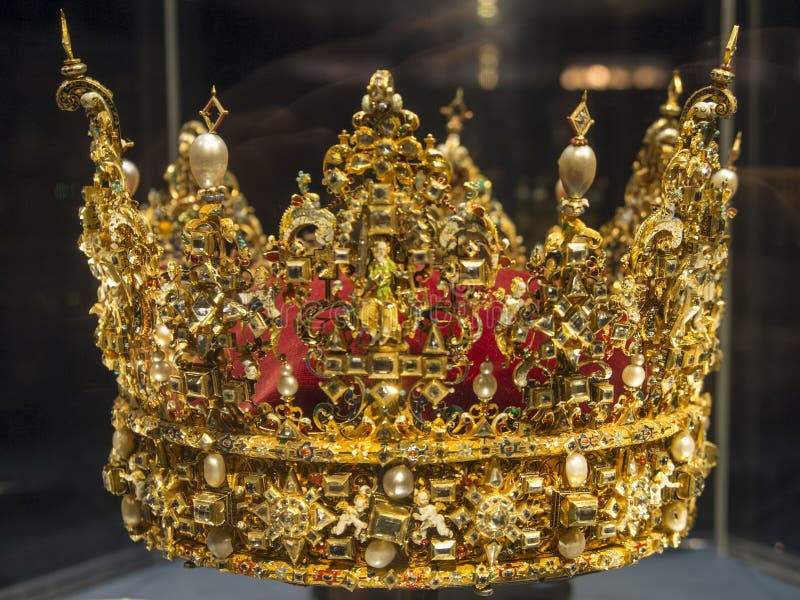Can we all just admit it? The chief disadvantage of living in the “greatest nation on God’s green earth” is that we Americans find it just a little tougher to sympathize with and even celebrate Monarchy.
I mean, wouldn’t we rather celebrate “Christ the President of the Universe?” This idea of Christ as the king is practically a frontal assault on all of our inclinations as patriotic Americans!

In other words, if we all know that the democratic republican form of government under which we live is the most suitable government for mankind, doesn’t this realization dampen our enthusiasm a wee bit for celebrating monarchy and kingship- and therefore, all that is entailed by theme of the last Sunday of the liturgical year?
The fact that Pope Pius XI added this feast to the Roman calendar fairly recently (1925) makes me think that he knew it would come as a little bit of a shock to free thinking and independent Americans. I am sure he meant to give a slap in the face to the rising and militant secularism of the time – and certainly he was thinking about the aggressive and violent assault on religious liberty in Mexico. Is there a greater antithesis to the mind of the secularist than the concept of Christ as the king of the universe?

As a High-School teacher, it often befalls my lot to read Herodotus,’ The Histories, his legendary and not so succinct account of the “Persian War.” Herodotus details the rise and “worldwide” dominance of Persia, until it was thwarted in its inexorable western expansion by a relatively small group of democratic free thinking Greeks, at such places as Marathon and Thermopylae.
If there is a lesson to be learned from Herodotus, it is certainly this: As mighty as the Persian monarchs were, as massive as their armies grew, as multitudinous as were their servile and oftentimes sycophantic minions, they were nonetheless no match for the wits and bravery of a free thinking democratic people. For heaven’s sake, Athens was the very cradle of democracy and yet according to Herodotus, Athens very nearly single-handedly put a stop to the seemingly all-powerful and haughty King Xerxes!

One cannot read Herodotus without feeling a twitch of exultation about the wit and resourcefulness and spunk that seems to arise when men think for themselves and agree by mutual compact to band together in a great cause. One cannot refrain from thinking that there is something beautiful about men who rule themselves democratically!
And so how is an American Catholic supposed to feel this Sunday? The very fabric of our society, our notions of law and reason and science and culture were bequeathed to us by the Greeks. Americans pride themselves on self direction. If I remember correctly our War of Independence was directed against overthrowing the rule of a monarch.

And although the French were exceedingly helpful to us in our efforts, we have never been quite comfortable with them either for all of their aristocratic leanings. Many Americans like Thomas Jefferson were at first quite sympathetic about the overthrow of the Catholic monarchy in France during their so-called “Revolution.”
But again here we are, patriotic Americans confronted with celebrating the very thing, the defeat of which, provided a foundation for the American Republic- Monarchy!
As a church organist and the “official four hymn selector” for my parish, I will choose the following hymns:
- Alleluia Sing To Jesus, His The Scepter His The Throne!
- Crown Him With Many Crowns!
- The King of Love My Shepherd Is.
- To Jesus Christ Our Sovereign King.
I like these hymns and given the fact that I am not singing the “Gregorian Propers” as I think I should be, these hymns are the next best thing. But notice the unfamiliar-to-Americans trappings of monarchy!
We have sceptres!
And (gasp!) Crowns!

And thrones!

Oh the horror! How can Catholics celebrate such things if Monarchy is an unsuitable form of government?
I wonder if many Christians simply take in “Christ the King of the Universe” Sunday like many other things that the Faith proposes. After all the Church proposes all sorts of things for our belief which are simply not consonant with sound science and ordinary reason. So it’s perhaps best not to think about such things.
As if to say, perhaps there is a very real divide between faith and reason. When one goes to church or to worship, it is best to simply hang up one’s coat and hat and intellect on the rack outside the church to be donned only upon exit.

Could it be that Kingship or Monarchy is indeed the fitting rule for mankind? This is not to say that this or that specific group of humanity should adopt a monarchical form of rule immediately. This is not to say that the American representative form of government by which we govern ourselves is not in fact the very best form of government available to us right now on our own time and place. Perhaps that form of rule is best relative to the manners customs and mores of this or that people.

But if one had to choose the form of government that is simply best without qualification, what would one choose? What form of government did God Himself choose to rule his universe? Did he choose the best government? Is it relevant to our eternal happiness that He is a monarch? I guess the answer is obvious.
It is a fundamental rule of Christian living that the habits and affections that we develop on earth are significant in disposing our hearts towards heaven. As St. Thomas Aquinas was fond of saying “Grace perfects nature.” We are disposed towards the things of grace by the things of nature. Faith and reason are not opposed but rather the more we strive to reason aright, the more we provide an intellectual disposition for the gift of God’s grace.
That Christ is a monarch is a significant part of our faith. Insofar as we might identify various Christian monarchs that did not overstep their authority or abuse their power, perhaps every Christian might gather some lessons concerning how we ought to think, behave and feel in the presence of a monarch? Perhaps there are minor and major points of reverence and courtly behavior that are lost on the disciples of Democracy? Most importantly, perhaps there is a lesson to be learned about humbly and immediately adapting our will to that of his sovereign majesty, Christ the King; deference to a king is something a little more difficult for we rugged American individualists, who are accustomed to think it always right to have a say in our own affairs.

Notwithstanding any obstacles in our path ascribable to our own political custom, I suspect that our celebration of Christ The King of the Universe this weekend will strike most Christians with the fitting annual realization that “Yes! Christ is the King! Christ should be enthroned in the very center and principal place in our hearts. Every Christian will undoubtedly be struck with the fitting thought that inasmuch as we have earthly concerns and earthly rulers, nonetheless Christ is ultimately in charge and we are to do nothing except it be his will!
Viva Christo Rey!






This is a wonderful article! Thank you for putting your time and effort into these blog articles. The whole family enjoys them.
You are most welcome! I am only too happy to have such an intelligent audience! 🙂 But I must warn you that I have been corrected on a couple of points by Andrew Seeley (whom I greatly respect!) – I did not mention that this is a re-post. But you may see Andrew’s comment at https://lionandox.com/2017/11/24/celebrating-christ-the-king-sunday-in-a-democratic-republic/
Great article! Thanks for sharing this inspiration. I love that encyclical – Quas Primas, I think, by Pius XI.
God Bless!
It seems that American Catholics often use the modern notion of equality in order to resolve the issue you raise, Mr. Langley. The argument runs thusly: Monarchy, the rule of the one over the many, is just only when the one is superior to the many. Thus, in the case of Christ, He is superior to us and can therefore justly claim to be our King. But in the case of political governments, no man is another’s superior because all men are created equal. Thus monarchy amongst mere men is unjust and democracy (or a republic or whatever) is the best form of government amongst equals.
One way to respond to this argument is to deny the premise that all men are created equal. People are born with different strengths, weaknesses, qualities, etc. The American Catholic’s response will be to say that all men are created equal insofar as all are made in God’s image and likeness and that a certain inalienable dignity arises from this, and in virtue of this dignity, all men remain equal with respect to each other.
But we can counter this by pointing out that Aquinas distinguishes 3 kinds of human dignity: 1) The dignity following upon our nature, which we have in virtue of being made in God’s Image and Likeness 2) The dignity of the Christian, which we have in virtue of being baptized and 3) The dignity of the Blessed, which they have in virtue of having attained Salvation. We can then argue that in none of these kinds of dignity is there equality. The first kind, Aquinas says, is already diminished by original sin, and it is diminished even more by actual sin (and he implies that it could be obliterated altogether in the case of a very grave sin). Clearly then, this dignity is not equal amongst all men since different men have different sins. Likewise, in the second kind, the dignity of Baptism is diminished or increased according to the life (or lack thereof) of grace in the soul. And finally, in the case of the Blessed, the saints teach us that the reward is greater in heaven for those who have achieved greater holiness on earth, so neither is their dignity equal. Thus in all three cases, there is no equal dignity to be found, and therefore the premise “all men are created equal” is at worst false, and at best irrelevant since the status of one’s dignity isn’t a stable thing (according to Aquinas).
Another way to respond to the American Catholic’s argument is to deny the premise that “Monarchy, the rule of the one over the many, is just only when the one is superior to the many.” We can ask, however, “superior with respect to what?” It seems, for example, that one can legitimately be superior to another in virtue of having authority over him (we call those who have authority over us “my superior”). But the relation of monarch-subject is clearly a relation which implies authority, and consequently superiority. So this premise is ambiguous (since the term “superior” is ambiguous) and also in need of justification (for since there are many cases where someone, e.g. your boss or your father, is your superior simply in virtue of having authority over you, it is not at all clear why monarchy wouldn’t work the same way, i.e. that the monarch is superior to the subjects simply in virtue of having authority over them).
Do you have any thoughts about this, Mr. Langley? Or anyone else on this blog for that matter?